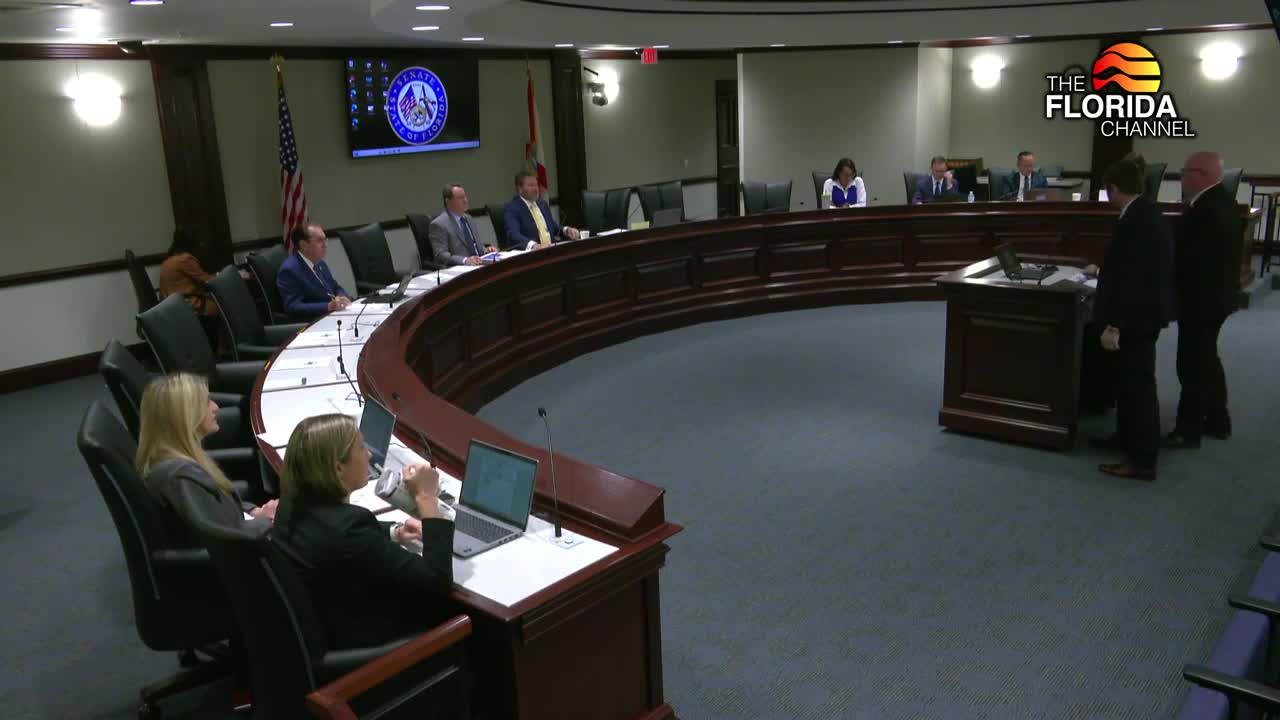Department of Juvenile Justice asks for roughly $163 million more for beds, facilities and IT upgrades
Get AI-powered insights, summaries, and transcripts
Subscribe
Summary
DJJ Secretary Matt Walsh told the Senate Appropriations interim committee the department requests about $163.4 million in additional funding for expanded residential capacity, per‑diem increases, facility repairs and information‑technology modernization to serve youth with complex needs.
Secretary Matt Walsh told the Senate Appropriations Committee his agency is requesting expanded residential capacity, higher per‑diem rates and a series of capital and information‑technology investments to address bed shortages and care needs for youth in Florida’s juvenile system.
The request is focused on three priorities: increasing residential capacity and staffing to place youth in appropriate treatment settings, repairing and replacing aging detention and residential facilities, and renewing DJJ’s information technology and leasing budgets to ensure operations and safety.
Walsh said the department’s total budget last year was about $762 million, with just over $585 million in general revenue. For the coming year, DJJ requested roughly $925 million overall — an increase the secretary described as about $163.4 million. He said residential expansion and upgrades for moderate‑risk and secure programs account for a significant portion of the request, roughly $33.2 million, and that per‑diem rates must increase to cover rising operating costs.
“Per diem rates” Walsh said, were targeted for a 17 percent increase to reflect higher operating costs; department figures cited per‑diem targets of about $322 per day for moderate risk programs, $359 for secure programs and $417 for intensive mental‑health programs. Walsh said the department’s residential system is operating near capacity — about 87 percent occupancy — and that there were 374 youth waiting to be placed while COVID‑era closures removed roughly 378 beds from the system.
On capital needs, Walsh outlined fixed‑capital outlay requests totaling roughly $22.7 million for repairs such as roofing, HVAC, plumbing and accessibility updates across residential facilities. He said the department also seeks about $6 million to renovate an existing vacant facility in Graceville to provide 32 additional beds for youth awaiting placement.
Detention‑facility repairs and replacements are a separate ask. Walsh said DJJ requested about $24.2 million for detention repairs and approximately $41.2 million to replace the Broward Detention Center with a 45,000‑square‑foot, hurricane‑rated facility. He said the department plans to demolish and rebuild the current Broward site and temporarily house affected youth in nearby counties during construction.
Walsh described other operational requests including $5.35 million for timely medical care and provider reimbursement, $653,000 for complex medical needs (nursing and specialized supervision), and a combined IT and cybersecurity package that included roughly $852,000 for Florida PALM preparation, $2.5 million for IT staff augmentation and $865,000 for evaluation or redesign of the nearly 30‑year‑old juvenile information system (JJIS).
Leasing costs also rose on DJJ’s list: the department requested about $8.3 million to cover higher lease costs for probation offices and other program spaces across the state.
Committee members asked Walsh for follow‑up details including a facility‑by‑facility list of owned versus leased properties and a status report on design work for the Broward detention center. Walsh said Broward is in an architectural and engineering phase and that Hillsborough’s new detention center is moving toward breaking ground.
Walsh also described clinical staffing and services: he said DJJ has specialized therapists and programs for substance misuse and mental‑health needs and that the department matches youth to the level of care required by individual treatment plans. Senators asked for counts of youth in substance‑use and intensive‑mental‑health residential programs; Walsh said he would provide those figures on request.
No appropriation votes were taken at the hearing; the department’s requests will be considered as part of the regular budget process leading into the next legislative session.
